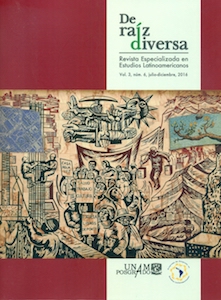Relative Autonomy in the Periphery: Reflections on the State in the Works of Nicos Poulantzas, René Zavaleta and Luis Tapia
Main Article Content
Abstract
The relative autonomy represents a constitutive feature of the capitalist state for Nicos Poulantzas. According to him, it is the premise that allows the state to be able to organize the dominant classes an constitute its political unity in the power bloc. In the case of the Latin American states, this understanding poses a serious problem. According to the Bolivian intellectuals Rene Zavaleta and Luis Tapia, during long periods relative autonomy was institutionalized in a weak and precarious way. Based on their reflections on the Bolivian context, the author of the article intends to define more precisely the analitical scope of relative autonomy so that the concept can account for the special characteristics of the state in Latin America and in the periphery of the modern world-system in general.
Downloads
Article Details
Citas en Dimensions Service

De Raíz Diversa por Universidad Nacional Autónoma de México se distribuye bajo una Licencia Creative Commons Atribución-NoComercial-SinDerivadas 4.0 Internacional.
